LEBANON’S entire government has collapsed as officials have fallen on their swords over the colossal explosion that killed 160 people.
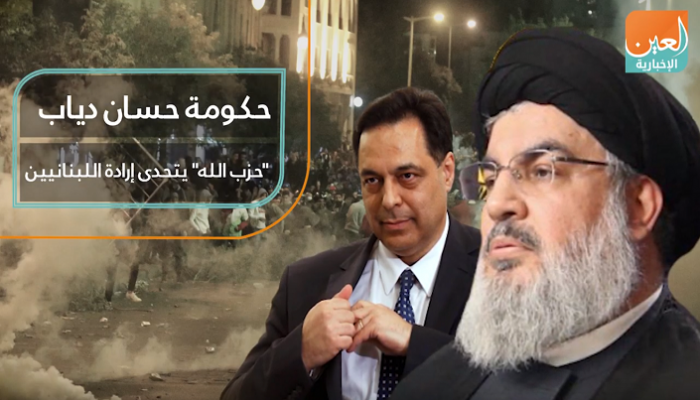
Lebanon’s health minister Hamad Hassan confirmed the government would resign following an emergency cabinet meeting on Monday amid allegations of corruption and negligence.
Hassan also added that Prime Minister Hassan Diab will head to the presidential palace to hand over the resignation in the name of all the ministers.
Speaking to reporters, Hassan said: “The whole government resigned”
The PM’s office said Diab is set to deliver an address to the nation at 7.30 pm local time – 5.30pm UK time.
Rage had been mounting as rioting swept the streets of Beirut following the blast last week that injured 6,000 and left at least 300,000 people homeless.
The horrific explosion was one fifth the size of the nuclear bomb dropped on Hiroshima.
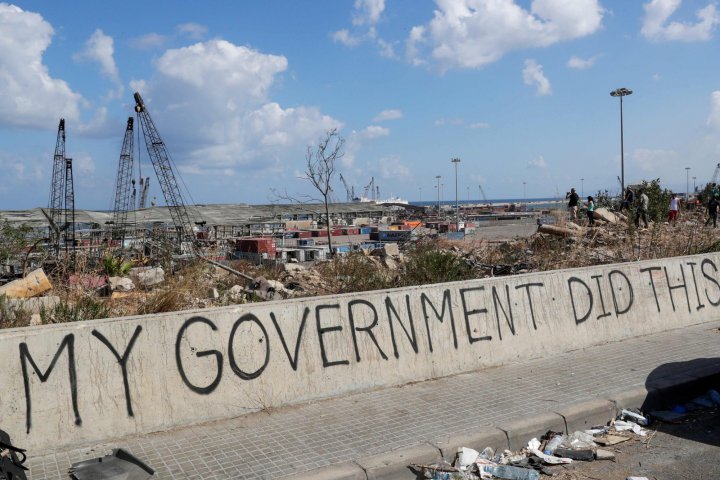
It emerged that numerous officials – including Lebanese president Michael Aoun – knew about the stash of 2,750 tonnes of ammonium nitrate in Beirut which caused the disaster.
Warnings had been issued years before as the killer cargo was seized from a ship owned by a Russian businessman who had gone bankrupt.
Several ministers had already stepped down amid murmurings that the government was on the brink of collapse.
The cabinet, formed in January with the backing of the powerful Iranian-backed Hezbollah group and its allies, met today after a slew of resignations.
Justice minister Marie-Claude Najms, information minister Manal Abdel-Samad, finance minister Ghazi Wazni, defence minister and deputy PM Zeina Akar, and environment minister Damianos Kattar all resigned in quick succession.
Kattar blasted the system as “flaccid and sterile”, while Abdel-Samad said the government had let the people down.
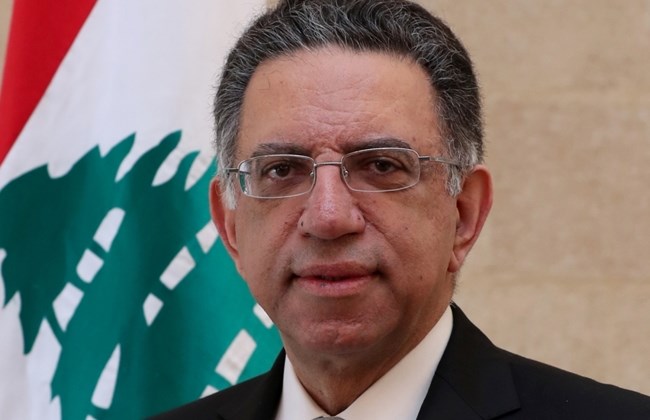
Meanwhile, Lebanese MPs Paula Yacoubian and Samy Gemayel resigned, with the latter confirming two other colleagues from his Kataeb party had also quit.
Yacoubian had called for the entire Lebanese government to resign – and said it was her “duty” to step down over the failures that led to the explosion
The apparant collapse of the government came as prosecutor Ghassan El Khoury began to question the heads of government agencies over the explsion.

Lebanese people had been calling for the entire regime to go following the disaster which came after the months of anti-government protests.
Joe Haddad, an engineer, told Reuters: “The entire regime needs to change. It will make no difference if there is a new government. We need quick elections.”
Food shortages and unrest are mounting in the city as the disaster compounded anger stemming from a severe economic crisis and the coronavirus pandemic.
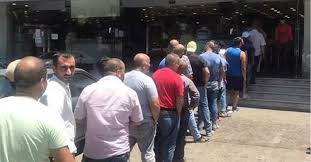
Eli Abi Hanna, whose home was destroyed, said: “It was easier to make money during the civil war. The politicians and the economic disaster have ruined everything.”
And meanwhile, Prime Minister Diab said on Saturday he would request early parliamentary elections.
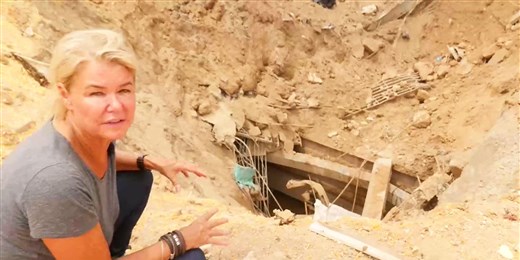
“It won’t work, it’s just the same people. It’s a mafia,” said Antoinette Baaklini, whose workplace was demolished in the explosion.
University student Marilyne Kassis added: “It will always be the same. It is just a political game, nothing will change.”
The killer cargo of 2,750 tons of ammonium nitrate was confiscated in 2014 from the Moldovan-flagged ship Rhosus while en route from Batumi in the ex-Soviet republic of Georgia to Mozambique
The ammonium nitrate was sold by Georgian fertiliser maker Rustavi Azot LLC, and was to be delivered to a Mozambique explosives maker, Fabrica de Explosivos.
It was however impounded by Lebanese authorities, and sat on the dockside in Warehouse 12 for six years until it blew up last Tuesday.
Reportedly the blast was sparked when a reckless welder caused a fire at nearby Warehouse 9 – which then spread to the explosive Warehouse 12.
“Hang up the nooses” trended across Lebanese social media as grief turned to fury in the days following the explosion.
Sources close to the investigation blamed the incident on “inaction and negligence”, saying “nothing was done” by committees and judges involved in removing the explosives.
Public Works Minister Michel Najjar told Al Jazeera he had only found out about the presence of the explosive material stashed at the port 11 days before the explosion.
“No minister knows what’s in the hangars or containers, and it’s not my job to know,” he said.
Badri Daher, Director General of Lebanese Customs, told broadcaster LBCI that customs had sent six documents to the judiciary warning that the material posed a danger.
He said: “We requested that it be re-exported but that did not happen. We leave it to the experts and those concerned to determine why.”
Another source close to a port employee said a team that inspected the ammonium nitrate six months ago warned that if it was not moved it would “blow up all of Beirut”.
Two documents revealed that Lebanese Customs had asked the judiciary in 2016 and 2017 to ask the “concerned maritime agency” to re-export or approve the sale of the ammonium nitrate.
One of the documents cited similar requests in 2014 and 2015 – suggesting repeated warnings about the danger were overlooked by the authorities.
Corruption bigger than the state
Diab officially announced his resignation amid widespread public fury at the country’s ruling elite over the devastating explosions in Beirut.
“This disaster is the result of chronic corruption,” Diab said in an address to the nation, referring to the port disaster.
“The corruption network is bigger than the state,” the resigned PM added,
“Some did not properly interpret the October 17 revolution. That revolution was against them,” Diab went on to say.
“They should have been ashamed of themselves because their corruption is what has led to this disaster that had been hidden for seven years,” he added.
Diab promised that his cabinet will be a technocrat government that will try to achieve the demands of the October 17 revolution but ended up being a huge disappointment like previous cabinets . Even minister in his cabinet represented one of the ruling parties aligned with Hezbollah , whether it is the Iranian backed Hezbollah itself , or speaker Nabih Berri or president Michel Aoun . There were no independents . For this reason the cabinet was a huge flop and ended up achieving nothing and failed to implement the agreed reforms . The country today is in lot worse shape that when Diab took over according to analysts.
What is ammonium nitrate?
AMMONIUM nitrate is a chemical compound which is predominantly used in agriculture as a fertiliser – but is also highly explosive.
It is a white crystalline solid and is highly soluble in water – with the chemical formula NH₄NO₃.
The chemical is applied in granule form into the soil and quickly dissolves under moisture, allowing nitrogen to be released.
Another use of ammonium nitrate is in the food industry where it is used as a nutrient in producing antibiotics and yeast.
In most countries, it is used to make explosives for mining, quarrying and civil construction because of its low cost and ready availability.
It has been the cause of numerous industrial explosions over the last three decades, including the explosion at a chemical plant in Toulouse, France, in 2001 that killed 31 people.
Ammonium nitrate was also used to create the explosives used in the 2006 Mumbai train bombings.
By itself, ammonium nitrate is not regarded as dangerous but under certain conditions, it can become deadly.
The chemical is classified as an “energetic material” meaning that it produces heat as it decomposes.
If there is a significant amount of ammonium nitrate it can generate enough heat to catch fire and continue to burn eventually causing an explosion.
Prime Minister Diab had vowed those responsible will “pay the price” – but the focus of the probe and public anger has turned on the regime.
International aid is being mobilised across the world to help support the victims and search for the dead among the rubble.
The US, UK, France, Gulf states and even rivals Israel have offered money and assistance – but Canada has refused to give cash directly to the Lebanese government due to fears of corruption.
Royal Navy vessel HMS Enterprise has arrived to carry out survey work in the port to establish the extent of the damage.
THE SUN

Leave a Reply
You must be logged in to post a comment.